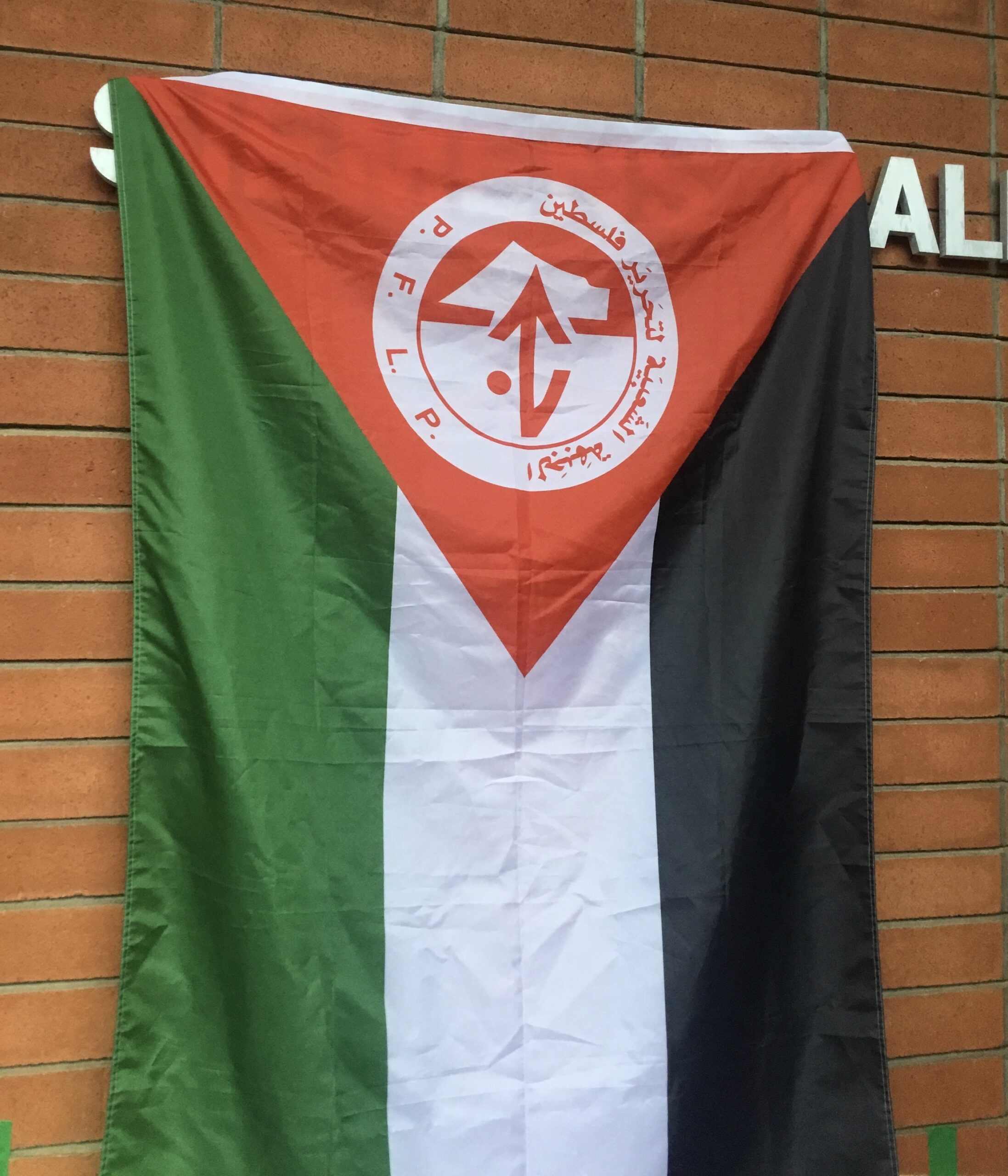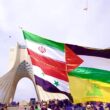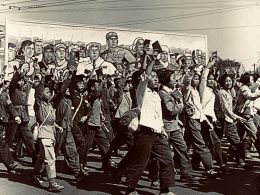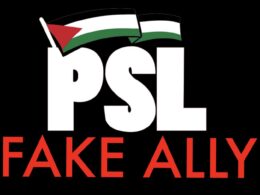Eurasia has been lost by the U.S. empire. We can tell this from how Taiwan still hasn’t been turned into a location for proxy warfare; even though a couple years ago the U.S. was testing its capacity to carry out a false flag within Taiwan; and such a direct war with China is clearly what Ukraine was initially intended as a way of getting towards; the fact that this war hasn’t come by now means it’s not likely to ever come. Why would the empire repeat its failed scheme in Ukraine, except this time while trying to subdue an opponent even stronger than Russia? Then there’s the loss of will for joining a war against China that’s appeared among the NATO member countries, even though these countries have for the moment been able to unite around countering Russia; the original plan of taking the proxy war to Taiwan would only have been sound if the west had prevailed in Ukraine.
Washington’s economic and military defeat in Ukraine has forced imperialism’s strategists to adopt a new plan for the cold war’s next stage; a plan that will still include attacking the PRC, but that makes both the PRC and Russia only two among dozens of additional targets.
This, as I and others have been talking about lately, is the hybrid war on BRICS; BRICS is still only one component of it though, because not every country that’s liable to be targeted by the empire throughout this decade is a BRICS member or a prospective BRICS member. There’s also Mexico, which doesn’t seek to join BRICS due to not wanting to provoke its menacing neighbor; there’s Serbia, which NATO is working to make into its next long-term location for bringing war to Europe; and there are all the African countries which won’t necessarily join BRICS, but are still increasingly breaking from imperial control. It’s the actions of these countries that could make Africa the place where Washington carries out its next big war psyop, the one that would have happened in Taiwan.
As the U.S. and its imperial partners react to the revolution in the Sehal by intensifying their war against Africa, what we’re seeing is a modern equivalent of when the British empire reacted to the American revolution by making its exploitation of its other colonies, like India, more severe. With it becoming less feasible for the imperialists to recolonize Eurasia, they’re shifting their operations elsewhere, or at least making the preparations for such a shift. Even though they haven’t yet quite been expelled from Asia, still finding military hosts in Japan, South Korea, Taiwan, and the Philippines; for them to be losing crucial sources of neo-colonial extraction in Africa right after failing in Afghanistan and Ukraine represents a major disruption.
Niger, Mali, Burkina Faso, and the other countries in their region which may join this anti-colonial revolt are major sources of wealth for western Europe in particular, which depend on neo-colonialism to stay stable amid the Russia sanctions blowback. And NATO’s destructive actions within Libya have already rendered many African resources impossible for the imperialists to reach, producing a civil war that’s made Libya’s oil held by anti-U.S. forces. The hegemon can’t afford to lose the rest of Africa, and obviously not the rest of Latin America or southeast Asia. The U.S. military occupation of the hemisphere surrounding China must continue to be expanded; a further African military buildup via AFRICOM must be carried out; Latin America must be brought back under firm U.S. control, which could involve invading Mexico and continuing with the latest plan to invade Haiti.
Should BRICS, the BRI, and the other tools to gain independence from the hegemon allow the rest of the Global South to become free; then all that’s left for the empire is to turn Europe into a neo-colony, and to carry out a final military buildup in North America. Which may not even be a scenario in which monopoly capital could survive.
The loss of Eurasia is putting the hegemon at risk of checkmate on the geopolitical chessboard. It’s bringing the formerly colonized world closer towards gaining the developmental capacity to no longer be dominated by international monopoly capital. Therefore, the empire is being forced to wage war against essentially the entire formerly colonized world, and against European countries like Serbia that are too in proximity towards Russia. Even though in the long term, U.S. war operations and propaganda narratives can’t continue to center around Eurasia, the political formations and individuals that have sided with the anti-imperialist cause during American warfare’s recent Eurasian stage are the ones the empire is going to target internally. As they’re the ones who’ve shown themselves to be willing to consistently counter the hegemon at crucial moments in its operations; the moments when it most needs control over the narrative in order to wage war, and thereby to defend monopoly capital.
The hybrid war on BRICS, which has now been extended into an intensified war against Africa, depends on cultivating the perception that the Global South countries that have been rebelling against U.S. power are going down an aimless path. Part of this narrative is the one which seeks to discredit BRICS as an international grouping, portraying BRICS as too weak and divided to have hope for seriously challenging the colonial powers.
This idea is predicated on a view of geopolitics which ignores the inevitability of change; as if we haven’t been seeing overwhelming evidence that viable challengers to the dollar are emerging, or that Washington has lost international credibility. It can be countered by pointing to the growing role of the yuan in places like Latin America, and to the broader successes of the BRI in shrinking the neo-colonial wealth gap. Ultimately, BRICS and the other institutional drivers of the multipolar world can’t be discredited, as history is going in a direction which favors them.
There’s another part of this narrative, though, that one can only counter when they’ve taken the pro-Russian side within the present proxy war; and thereby in order to try to defend this narrative, our imperial institutions are going to further suppress these pro-Russian communist elements. This part of the narrative portrays anti-imperialist movements like the one in the Sehal as being wrong for siding with Russia; a characterization that dissuades developing radicals from learning vital lessons from these movements, while encouraging a chauvinistic dismissal of successful anti-imperialist projects.
Backing Russia in the narrative war—and thereby making its victory against Ukrainian fascism more reachable—is the practice shared by socialist states like the DPRK, by these Global South movements, and by principled U.S. communist orgs like the African People’s Socialist Party. It’s because APSP has aligned itself with these greatest threats towards empire that last year the party got raided, and that this year the party had its top members indicted for a supposed Russian interference conspiracy.
Communist formations like APSP, ones which aid and build ties with every major anti-imperialist force, are the greatest targets of this year’s RESTRICT act. If passed, RESTRICT would codify the legal logic behind the APSP indictment, criminalizing all efforts at international anti-imperialist solidarity outreach. This bill lists many of Washington’s biggest geopolitical opponents as countries whose technologies it would become illegal to engage with, and no doubt this list would be expanded without limit if the bill were to become law.
Because widespread civil libertarian backlash has momentarily brought RESTRICT out of the legislative conversation, a scenario in which it could still pass is where another major psyop gets manufactured; and as I said, Africa is now a likely location for that upcoming psyop. Whether that next moment of escalation in the class conflict comes in a few years, next year, or later this year, we’ll have to be ready to continue the fight against imperialism’s narratives, and to keep our cadres running.
The first part of the attacks against our cause will be attempts at breaking solidarity with those being targeted, as we’ve already seen with how pro-Russian orgs such as APSP have been maligned by opportunistic forces in this country’s “left” spaces. The next part is the actual repression, which we can only survive by becoming more clandestine.
While we come ever more under siege by the anti-revolutionary forces, the knowledge that monopoly capital is overall losing can provide us with hope. The state is targeting us more and more because U.S. imperialism is declining, and because we’re building a movement that’s capable of defeating the empire’s increasingly fragile internal power centers. By the end of this decade, and especially by the end of the next, there’s no telling how much the situation in the empire’s core could be destabilized; the 2040s are when the U.S. military has speculated its own collapse could come, and if our near future includes that outcome, the conditions for workers revolution are to grow still more favorable.
That this internal collapse is happening at the same time as the hegemon’s forced pivot towards Africa, where the concluding battles against colonial power are to be fought, is no coincidence. Keep working to weaken our imperial institutions, starting with the media and its increasingly fragile narrative dominance; the information war is a vital part of our route towards overthrowing the state.
————————————————————————
If you appreciate my work, I hope you become a one-time or regular donor to my Patreon account. Like most of us, I’m feeling the economic pressures amid late-stage capitalism, and I need money to keep fighting for a new system that works for all of us. Go to my Patreon here.
To keep this platform effective amid the censorship against dissenting voices, join my Telegram channel.








